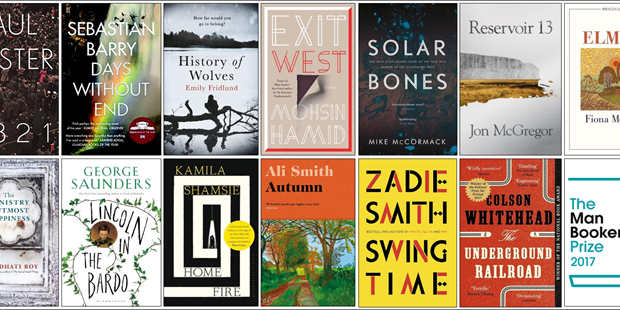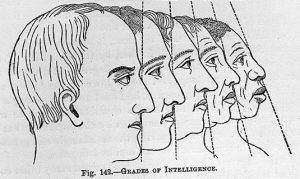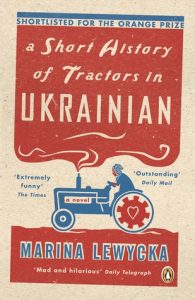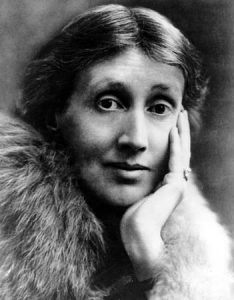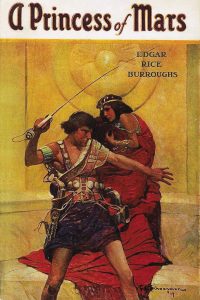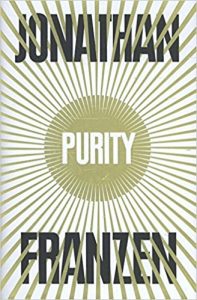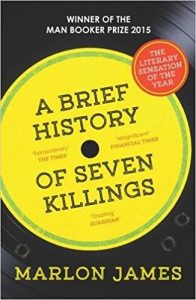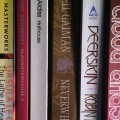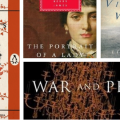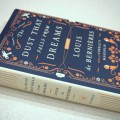Literary fiction awards rarely go to works of science fiction and fantasy. We review a lot of genre fiction on Pop-Verse. Mainly science fiction and fantasy. These books might be lauded in their own fields but are, with some exception, excluded from ‘serious’ awards prestige. Despite the fact that these works can deal with incisive challenging ideas and do so with rich complex prose, they are no deemed to be sufficiently literary. This plays into a long-standing bias against anything that remotely smacks of genre in the ‘serious’ literary community. But the implications of this problem goes beyond mere ghetto-isation. Any body claiming to commemorate literary merit that arbitrarily excludes works cannot actually have any claim on doing so. This ultimately false claim is an example of a long-standing delusion of a certain subset of middlebrow readers.
Let’s define our terms first. When I talk about ‘literature’ here, I don’t mean it in the general sense of anything published on a topic. I am referring to substantial works of fiction. Hence ‘literary’ refers to works of fiction possessing significant philosophical and formal import. These are books that deal with dense ideas and challenge their readers not only in what they write about, but in how they are written. These books are notable contributions to the edifice of civilisation.
But now we must come onto the altogether messier terms of ‘highbrow’, ‘middlebrow’, and ‘lowbrow’. These words derive from the pseudoscience of phrenology, which studied skull shape as a determinant of character. The brow measured intelligence. The lower the brow, the more underdeveloped and stupid the person in question was. Like a neanderthal. Conversely, the higher the brow, the smarter and more sophisticated. Now largely applied to cultural pursuits, the terms generally define the intellectual credentials of a given activity. As with any intermediate state, ‘middlebrow’ has been the most contentious to define.
Debates around defining middlebrow culture are long-standing and messy. Not least as regards to class distinction and this is especially true of fiction. Historically highbrow works, being ostensibly philosophically and aesthetically complex, tended to be the pursuit of the upper and upper-middle classes. Those being the only people who could afford an education. In the era when mass literacy was taking off, the upper and upper-middle classes no longer found themselves the sole consumers of books. Hence claims of deeper meaning were, typically, reserved for books favoured by these people.
Inflected with snobbery though this is, it does signal a major distinction between high- and lowbrow. The lowbrow is, by design, meant to entertain. It is easy to consume, enjoyable, and meant to be readily accessible. The highbrow is difficult (but rewarding) and not necessarily of mass appeal or accessibility. Requiring a thorough education in foreign cultures, philosophy, theology, etc., might be esoteric but is not a barrier to being regarded as highbrow. Apart from class, the other key distinction this maps over is the methods of production. The American social critic Dwight MacDonald outlined his view that the highbrow consisted of works produced for connoisseurs – people with special focused interests. The lowbrow tended to be produced by grassroots folk interests – activities arising organically amongst communities, like football and fornication. The middlebrow was mass-produced, market-led, and emulated the other two.
Whether or not MacDonald’s model is airtight, his observations on the middlebrow do identify a trend. The middlebrow is seen to adulterate or copy either lowbrow or highbrow pursuits, usually as a commercial endeavour, and typically homogenises it. As I am so fond of saying, the mainstream is fundamentally incapable of producing its own culture. The other key factor identified is that the middlebrow is stagnant. The deference to market forces never innovates; that only occurs when a new avant garde or community trend emerges in the high- or low-brow communities. What then does this say of a middlebrow readership?
Virginia Woolf weighed in on this. Writing to the New Statesman & Nation, the author and essayist claimed that the middlebrows were readers who bought books rather than read them. They did so not out of an ability to recognise their innate merit or cultural value, but to look impressive on their bookshelves. These middlebrows were, in her eyes, vulgar pretenders incapable of engaging with deeper issues of art, integrity and aesthetics. They were pursuers of shallow objectives like ‘money, fame, power, and prestige’. Her view was shared by some, and was repudiated elsewhere as an effort to vainly project her unwarranted sense of superiority onto others.
Interestingly, Woolf was assertive about the merits of the lowbrow in spite of her disdain for the middlebrow. Whereas the highbrow was a worthy intellectual pursuit, the lowbrow was pursued by people who recognised the value of seeking enjoyable experiences. An honest and unpretentious pursuit of enjoyment was a worthy thing, apparently, because it recognised the inherent value of an activity. This is one of the hallmark accusations levelled at the middlebrow by comparison: it is inherently dishonest. That the middlebrow is for people pretending to be clever or pretending to enjoy something to embellish their cultural persona.
As you can see, the antipathy towards the middlebrow is linked to a brand of consumer capitalism. The inherent disdain for middlebrow pursuits has not been consistent and universal though. Various writers and thinkers have advocated for recognising the purpose and value of middlebrow activities. Defenders would contend that the middlebrow, when divorced from pretensions of highbrow merit that it has no claim on, serves as a reassuring kind of entertainment. It requires more engagement and complexity than the rather simple and direct pleasures of the lowbrow, but not the exhaustive and at times unenjoyable demands of the highbrow. JB Priestley and Virginia Woolf disputed this when Priestley defended the ‘cosiness’ of the BBC Home Service.
This word ‘cosiness’ brings us finally back around to genre fiction. The platform on which genre fiction is usually excluded from literary awards is that these books openly belong to a genre and the purpose of genre is to reassure. Genre is a collection of conventions and tropes which appeal to a readership. You want to read a story of space dynasties fighting for a throne world in a tale of betrayal and honour, you read a space opera. You read that space opera to satisfy cravings with familiar ideas and content. According to Priestley, no problem there. According to highbrow standards of merit this is not inherently challenging and, though not without value (depending on who you talk to), not in consideration for literary accolades.
The picture of course gets messier than this. Post-modern conceptions of literature contend that genre can and should be played with to deconstruct the ideology of fiction and thus of people and their subjective reality. Few of the arguments above recognise that readers can and do read across different intellectual levels. Everyone does. Furthermore, little credence is paid to the fact that reading is an act of intent. You can read a book and its intellectual and cultural worth is largely incumbent upon the intent for critical engagement of the reader. Not everyone gets that much from War and Peace and that is not necessarily Tolstoy’s fault.
Most importantly, two statements of fact pertain to the exclusion of genre fiction on this basis. Firstly, plenty of science fiction and fantasy is demonstrably of aesthetic and philosophical import. Secondly, a lot of what is awarded prizes for literary merit is shamelessly genre fiction.
The first is simple enough. Yes, there is plenty of genre fiction that is unpretentiously designed to give its readership a fix. Beyond that, there is also a lot of crap. But the presence of bad or candidly middlebrow genre fiction does not preclude or diminish the presence of literary science fiction and fantasy. A work set in speculative setting can possess literary qualities and can offer a significant intellectual challenge to its readership.
On the second point, I do not like the term ‘literary fiction’. I much prefer the term ‘prestige fiction’, meaning the types of books you expect to win prizes. The former has an unwarranted monopoly to highbrow credentials. These books can be easily identified by their content and style. By which I mean, they regurgitate a collection of conventions and tropes which appeal to a readership. They are explicitly a genre. As such these books fulfil that lowliest of genre aims that precludes speculative fiction from awards: they satisfy and reassure their readership. They do not challenge. They are cosy. They are middlebrow.
Now, let’s not take it to extremes. I am not seriously suggesting that the entirety of the Man Booker long list is composed of simpering attempts to appease a pretentious middle class readership with limited imaginations and Woolf’s derided aspirations of ‘money, fame, power, and prestige’. Not all of them, at least. And do bare in mind what I said above about the intent of readership. The books may (and often are) abounding with serious literary merit. I just question how engaged with the highbrow credentials the primary consumers (and I say consumers, not readers) of prestige prize-winning fiction are. Woolf (who I implicitly derided for snobbery but am now unapologetically backing) maintained that middlebrow and highbrow readers had the same books, but highbrow readers read them properly.
The fact remains that prizes like the Man Booker select books because they appeal to an established readership, not on singularly literary grounds. They pick familiar content to please a market looking for a particular kind of product. This is not avant garde, this is conservative. The fact that an oxymoron such as ‘commercial literary fiction’ exists is a stunningly frank admission of the middlebrow credentials of prestige fiction. By Dwight MacDonald’s definition, at least.
Now, I do not have a problem with these books. I am a major proponent of books that would be considered prestige fiction. I read them, avidly and consistently. Probably more often than I do traditional genre fiction. I do not have a problem with people celebrating these books. I am not saying those prestige fiction books which win or are nominated for prizes do not possess highbrow credentials. My point is simply this: the primary criterion by which prestige fiction is selected and designated is its adherence to a middlebrow conception of genre and the degree to which this will satisfy a primarily middlebrow readership. It is this conception of genre that conversely sees literary science fiction and fantasy precluded from selection. Any awards body practising this selection process cannot by definition have any claim on literary insight or hypocritically designate literary status.
And it is not even as though major figures within the literary community disagree. Salman Rushdie has been open about championing the value of fantastical fiction. Author of A Brief History of Seven Killings and winner of the Man Booker Prize 2015, Marlon James is writing a fantasy trilogy called Dark Star, the first instalment of which comes out this year. Some out-and-proud science fiction and fantasy authors do break out of the ghetto and champion the cause. No one could doubt the authority of Margaret Atwood. Nobel Literary Laureate Doris Lessing made no bones about the fact she wrote science fiction alongside her more traditionally ‘literary’ works. David Mitchell, author of Cloud Atlas and another Man Booker winner (sorry to pick on you guys, but… you know…) went as far as saying that genre-snobbery was an act of ‘self-mutilation’.
There is always a backlash from the amorphous middlebrow not-all-that-literary establishment. Fears of opening the floodgates. The creeping dread of the consequences of giving an inch and admitting that they had been purposefully excluding worthy books. That the moment they do, Dan Brown and Stephen King will ride in on golden chariots paid for by their advances and destroy any recognition of authors who can actually write.
This is of course the absurd response of people who know they are wrong and cannot admit it. No one is seriously going to award literary prizes to these stooges. Acknowledging the literary merit of a wider array of books means greater opportunity to engage with hardcore highbrow material. It does not mean a bunch of socially-non-functioning neckbeards will invade and demand that something as bloated and awful as The Wheel of Time be declared the greatest work of serious literature over Ulysses.
But we do need to call out these pretences where we find them. Elevating the middlebrow to the highbrow or arbitrarily dismissing great works of fiction is harmful to our culture and denies these works their due (not to mention their audience). I just ask that if you read fiction as a discerning highbrow pursuit, you read well, you read voraciously, and you read widely.
 Pop Verse Pop Culture Universe
Pop Verse Pop Culture Universe
